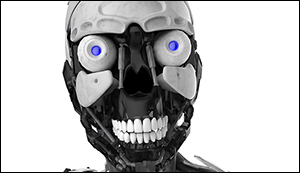The next frontier for artificial intelligence
24. 7. 2015 | IIIA SCIC, ZDNet | www.zdnet.com
Spain's artificial intelligence research institute is looking at teaching robots to know their limits, but think human-level AI is a way away just yet.
Nearly half a century has passed between the release of the films 2001: A Space Odyssey (1968) and Transcendence (2014), in which a quirky scientist's consciousness is uploaded into a computer. Despite being 50 years apart, their plots, however, are broadly similar. Science fiction stories continue to imagine the arrival of human-like machines that rebel against their creators and gain the upper hand in battle. In the field of artificial intelligence (AI) research, over the last 30 years, progress has been similarly slower than expected.
While AI is increasingly part of our everyday lives - in our phones or cars - and computers process large amounts of data, they still lack human-level capacity to make deductions from the information they're given. People can read different sections of a newspaper and understand them, grasp the consequences and implications of a story. Just by interacting with their environment, humans acquire experience that gives them tacit knowledge. Today's machines simply don't have that kind of ability. Yet.

Futurists who talk about 'the singularity', meaning the hypothetical advent of artificial general intelligence (also known as strong AI), predict it will occur between 2030 and 2045. The main difficulty in artificially reproducing the functioning of the human brain stems from the fact that the organ is analogue. Its ability to process information not only depends on the electrical activity of neurons, but also on many kinds of chemical activity, which can't be modelled with current technologies. Non silicon-based technologies such as memristors, a type of passive circuit elements that maintain a relationship between the time integrals of current and voltage across a two terminal element, or DNA computing will be needed to move forward. We need something more than a technological change to solve the problem: we also need new mathematical models and algorithms to artificially reproduce the human brain - algorithms that are as yet unknown.
Read more at ZDNet
Image Credit: Dollarphotoclub
-jk-



